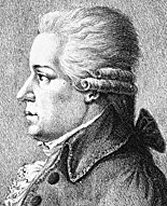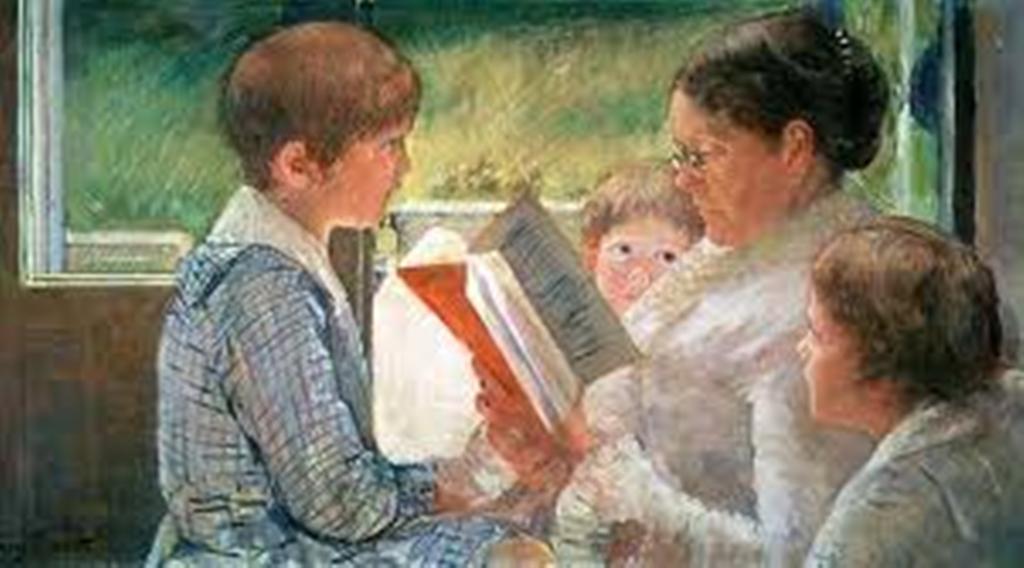Dinner Topics for Friday
“Perseverance is more prevailing than violence; and many things which cannot be overcome when they are together, yield themselves up when taken little by little.” Plutarch (46-127); Historian, Writer
Watch a young boy play this beautiful Harp Concerto
 Carl Ditters von Dittersdorf
Carl Ditters von Dittersdorf
From Wikipedia, the free encyclopedia
1739-1764
Dittersdorf was born in the Laimgrube (now Mariahilf) district of Vienna, Austria, as August Carl Ditters. His father was a military tailor in the Austrian Imperial Army of Charles VI, for a number of German-speaking regiments. After retiring honorably from his military obligation, he was provided with royal letters of reference and a sinecure with the Imperial Theatre. In 1745, the six-year-old August Carl was introduced to the violin and his father’s moderate financial position allowed him not only a good general education at a Jesuit school, but private tutelage in music, violin, French and religion. After leaving his first teacher, Carl studied violin with J. Ziegler, who by 1750, through his influence, secured his pupil’s appointment as a violinist in the orchestra of the Benedictine church on the Freyung.
Prince Joseph of Saxe-Hildburghausen soon noticed young Ditters, and on 1 March 1751 hired him for his court orchestra. Under princely auspices he studied violin with Francesco Trani who, impressed with the ability of his pupil in composition, commended him to Giuseppe Bonno who instructed him in Fuxian counterpoint and free composition. After a few years Prince Joseph disbanded the orchestra, since he had to leave Vienna to assume the regency in Hildburghausen, and the Austrian Empress hired Dittersdorf for her own orchestra through Count Durazzo, Theatre Director at the Imperial Court. In 1761 he was engaged as violinist in the Imperial Theatre orchestra, and in 1762 its conductor. It was during this period that he became acquainted with Christoph Willibald Gluck, who had just achieved greatness as an opera composer with the Vienna première of his Orfeo ed Euridice. In 1763 he traveled to Bologna with Gluck to see the opera Il trionfo di Clelia: an Italian tour that was to leave the greatest impression on his future work as a composer from both the Austrian Gluck and the contemporary Italian musical scene. In 1764 he traveled to Paris, a trip with only scare and uncertain documentation. Back in Vienna in 1764, his contract with Count Durazzo expired that winter, but he met the great Joseph Haydn and became one of his closest friends.
Style and Fame
Ditters’ early work laid the groundwork for his later more important compositions. His symphonic and chamber compositions greatly emphasize sensuous Italo-Austrian melody over motivic development (which is often entirely lacking even in his best works, quite unlike those of his greater peers Haydn and Mozart)
Even with these reservations, Dittersdorf was an important composer of the Classical era. After some early Italian opere buffe, he turned to writing German Singspiele instead, with Der Apotheker und der Doktor (1786, generally known today as Doktor und Apotheker) in particular being a tremendous success in his lifetime, playing in houses all over Europe and recorded almost two centuries later. Among his 120-or-so symphonies are twelve programmatic ones based on Ovid‘s Metamorphoses, although only six have survived (and have also been recorded). He also wrote oratorios, cantatas and concertos (among which are two for double bass and one for viola), string quartets and other chamber music, piano pieces and other miscellaneous works. His memoirs, Lebenbeschreibung (“Description of [My] Life”), were published in Leipzig in 1801. Some of his compositions, including the double bass concerto, were published in Leipzig by the Friedrich Hofmeister Musikverlag.[2]
List of Dittersdorf many works







You must be logged in to post a comment.